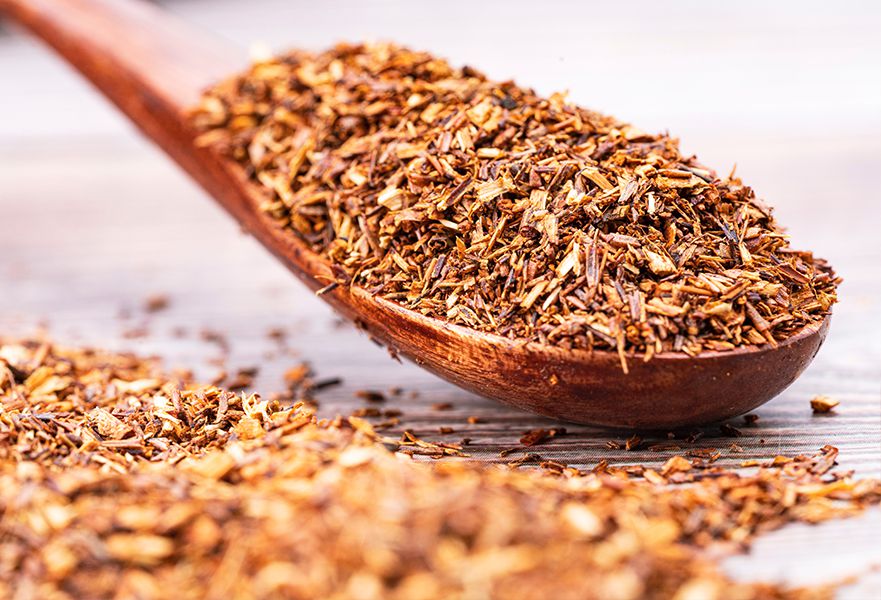Beverage with no theine, ideal for evening
Discover our other origin teas:
While tea originates from Asia, it is also cultivated in other parts of the world, particularly in Africa. African tea is generally a black tea produced in Kenya, Rwanda, or Malawi. Kenya currently ranks third globally among tea-producing countries. African teas are characterized by powerful and full-bodied flavors. We have sourced for you some organic African teas that have been selected for their remarkable quality.

The majority of African tea is produced mechanically using the crushing-tearing-curling method. The tea leaves are literally crushed and shredded. This type of tea is mainly intended for sale in tea bags. However, some plantations have chosen to produce quality teas using the orthodox method and choosing organic production. This results in true wonders for the palate like our Rwandan black tea, a single-origin tea produced in very small quantities in the heart of the Rukeri African garden. Another specialty of the African continent is red tea or rooibos. While it's not actually a tea, this infusion has become very successful and is now exported to all corners of the globe.
Another African specialty, rooibos or red tea is produced in the Cape mountains of South Africa. If rooibos isn't really a tea, it's because it comes from a type of broom plant and not from Camellia Sinensis. However, you'll often find this infusion under the generic term red tea due to its sublime reddish-orange color. It comes in the form of long needles with warm tones. Rooibos is a mild drink with a delicate nutty flavor. It can be enjoyed plain or with milk. African red tea is therefore an infusion that has nothing to do with tea. It contains no theine. It can be consumed throughout the day without any restrictions.

Red rooibos tea has numerous health benefits and is used by indigenous people to treat many ailments. Eczema, asthma, insomnia, or colic, there are many virtues attributed to it. It is mainly rich in polyphenols, which places it among antioxidants. It is also recommended to consume rooibos in case of digestive discomfort, as it has a relaxing and soothing effect. Its cousin, honeybush, also comes from a small bush similar to broom. It is also known to relieve stomach aches and is said to be a powerful protector of human DNA.
Discover our other origin teas: